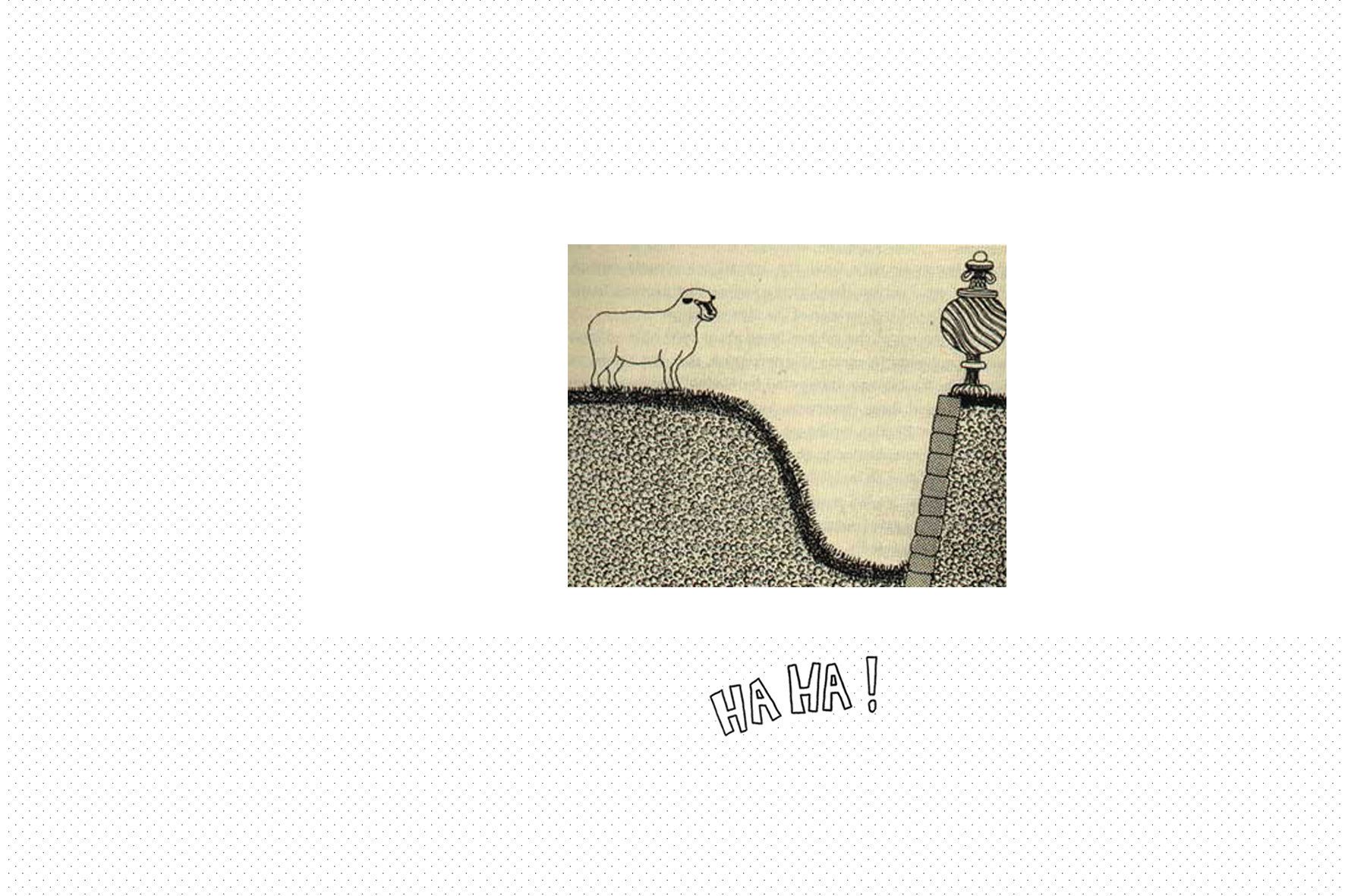-
PREFACE…
read more
Dedicated to Robert Walser, whose Family Name is on a brand of sausages that I picked up in Bregenz, Austria.
About a month ago, today’s date is the 6th June 2014, I went walking in the generosity of a Sunday drenched in Sun. It’s delightful when a word for something can relax and offer itself so openly to it’s constituent parts like on that day, the day of Sun. But words can be awfully treacherous and wonderfully promiscuous.I was walking with my nephew. His name is Will. He’s a lovely and intelligent young man. He’s my oldest nephew and he’s now living in London (he played a part in a performance I did in London last year). It was in the North East of London where we walked on this day.
We’re trying to talk about the words for things, like Sun + Day but we’ve been distracted by another story.
We wanted to talk about words at service. How they are coerced into utility, like on a sign. I want to talk about a man, a homeless person of advanced age, I met near Penn Station—I will protect his name here and I won’t talk about him either because there are so many stories—whose skin was so dark I could almost not see the tattooed tear under his left eye. His nails were painted hot pink, and all dressed up they displayed beautifully in company with the colour of his skin.
Our little walk on this Sunny day revealed to my nephew and I, a sign on a post painted slick black. The sign was square-ish and its rounded corners softened the strangeness of its proposition. In black letters, Capitalised but also with rounded sharp corners, it said PASSING PLACE. I was immediately floored, so to speak. I had the distinct feeling, after reading these letters that I was about to pass in to some other zone, another mind—without place.
I’ve been doing that now for about a year. Writing has traced many places. I’ve written about them (and many others) when I’ve not been in those places. These places, the writing about them, has been packed in to, been constrained by, about a calendar year. It seemed then, for a moment on that sunny day that the sign knew what I’d been performing this whole time.
All of a sudden the realisation quickly came about that the sign had been enlisted for some sort of traffic signal. This wasn’t the generosity of a Sun on a Sunday.
And this is where the story you’re about to embark upon re-enters the stage.
It seems that the words for things are at the service of many an Apparatus. So, if you would like to refuse this then please, stop reading, words are also an Apparatus. PASSING PLACE at first made me laugh because of its ridiculousness! There, in front of me, was a street, a place, houses on one side and a Victoria Park on the other. Its absurdity made me marvel about the flexibility of words, The Pleasure of The Text. It’s the remarkable quality of words, their ability to contain so much, that has allowed me to revel in the words of others, the names of others that I would truly like to mention here.
But we’re not going to do that because we’ve witnessed what words can be made to perform, how they are used. Words in the account we’ve just read have been appropriated for some effect. The one’s on the sign have been tossed so far away from themselves, like a frisby spinning wildly in a Park, that they caused me confusion—at first a wonderful confusion—until I realised they were at the service of whatever Pedestrian Convention they were in service of.
Refusing a name/words can be a liberating thing and can also serve as a cover, an opportunity for subterfuge. Someone once told me, I call him MiLKy, that to avoid the face-recognition that a surveillance camera or some such device is able to ascertain or steal, a face must merely wildly exaggerate the dishonour to symmetry it prefaces.
We are now PASSING PLACE... GOD FO ERAWEB.
Text: Gerry Bibby, 2014
Scott Cameron Weaver reads from
THE DRUMHEAD
by Gerry Bibby
Over the past half-decade, artist Gerry Bibby has inserted narratives and instructional texts into his artworks as acts of tactical withdrawal. The Drumhead is Bibby's first publication, and includes a series of his 'Language Costumes' or fragmentary texts which, like the Burroughsian 'routine' or Walserian 'microscript,' attest to an offended intelligence.
Gerry Bibby’s artworks move across performance, sculpture and writing, taking form at the uncomfortable fissures between the three. His ‘Language Costumes’ arrive at these junctions as self-styled instructional texts, photocopy machine manuals, drinks menus and poetic passages. His captivating passages brim with wit, wry observation and occasionally with disgust, offering viewers ‘ways out’ even if only at the time of reading.
Wednesday – Friday 12 – 6 pm
Saturday 12 – 4 pm and by appointment
Gerry Bibby
Passing Place
06.07. – 13.09.2014
-
PREFACE…
read more
Dedicated to Robert Walser, whose Family Name is on a brand of sausages that I picked up in Bregenz, Austria.
About a month ago, today’s date is the 6th June 2014, I went walking in the generosity of a Sunday drenched in Sun. It’s delightful when a word for something can relax and offer itself so openly to it’s constituent parts like on that day, the day of Sun. But words can be awfully treacherous and wonderfully promiscuous.
-

Installation view, Gerry Bibby, Passing Place, Deborah Schamoni, 2014 -
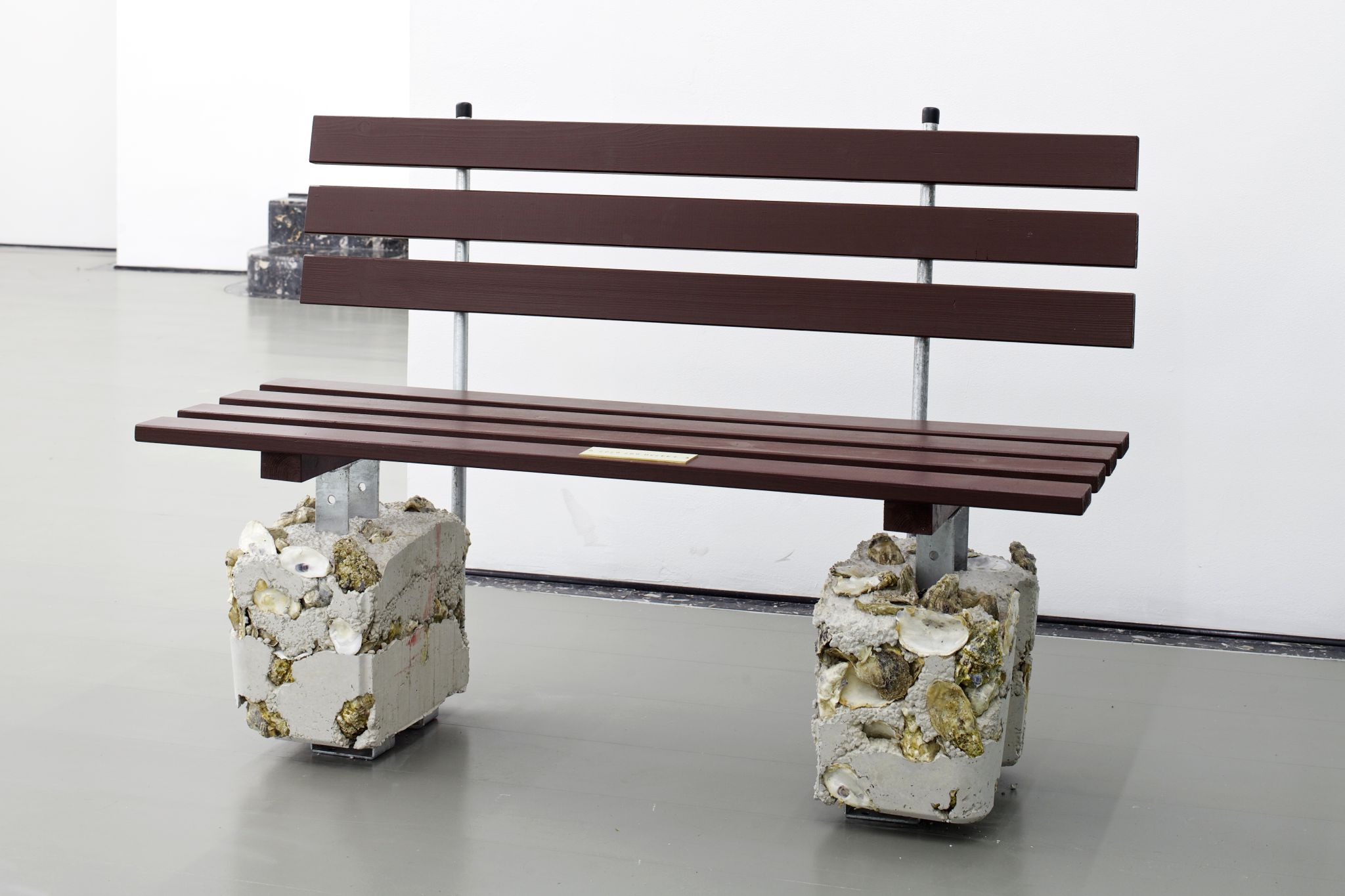
Gerry Bibby, LONDON BROWN II (+4475069767627), 2014
Concrete, oyster shells, metal, wood, lacquer, brass, 83 × 124 × 46 cm -
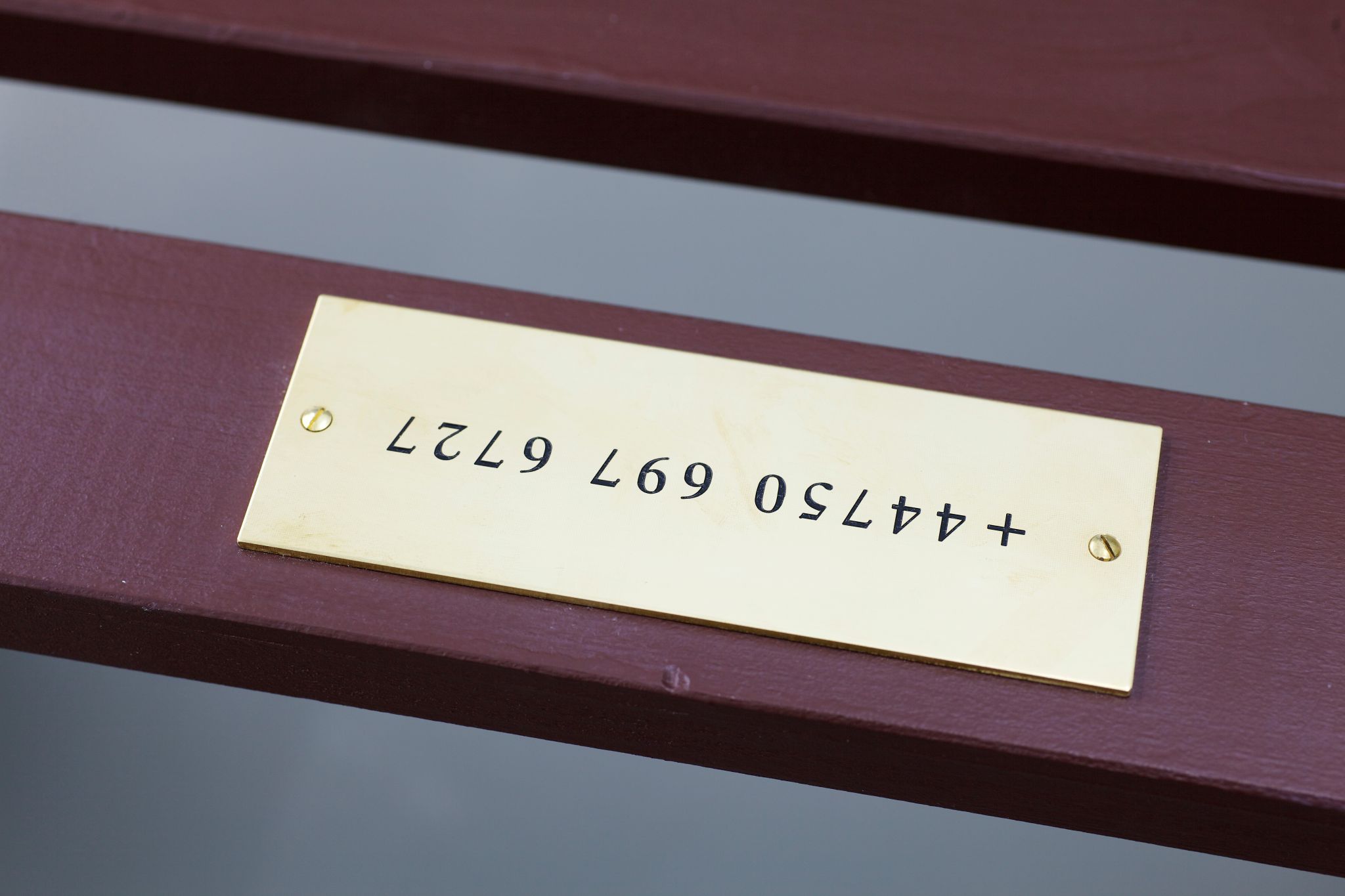
Gerry Bibby, LONDON BROWN II (+4475069767627) (detail), 2014
Concrete, oyster shells, metal, wood, lacquer, brass, 83 × 124 × 46 cm -
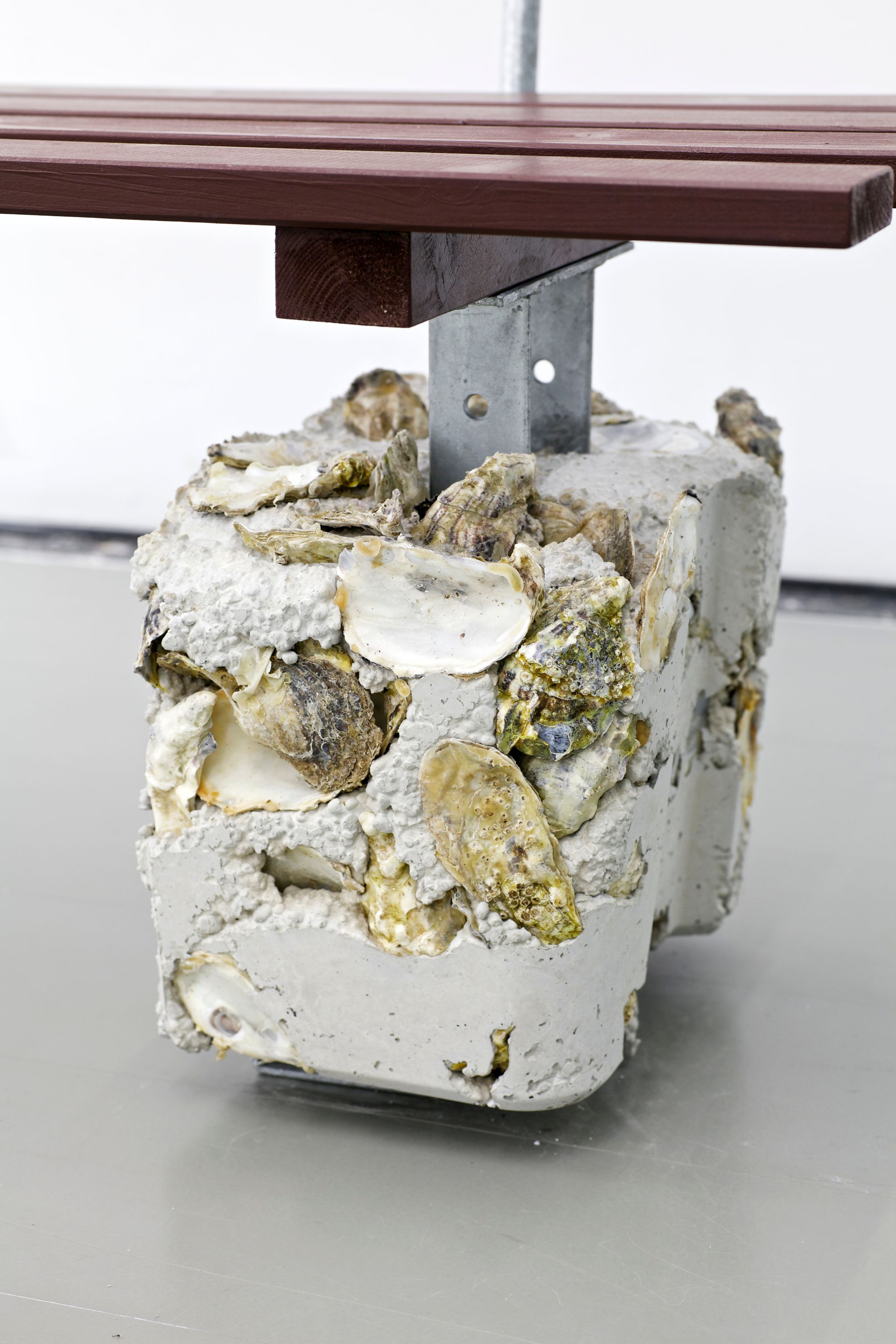
Gerry Bibby, LONDON BROWN II (+4475069767627) (detail), 2014
Concrete, oyster shells, metal, wood, lacquer, brass, 83 × 124 × 46 cm -

Gerry Bibby, LONDON BROWN II (+4475069767627) (detail), 2014
Concrete, oyster shells, metal, wood, lacquer, brass, 83 × 124 × 46 cm -

Installation view, Gerry Bibby, Passing Place, Deborah Schamoni, 2014 -
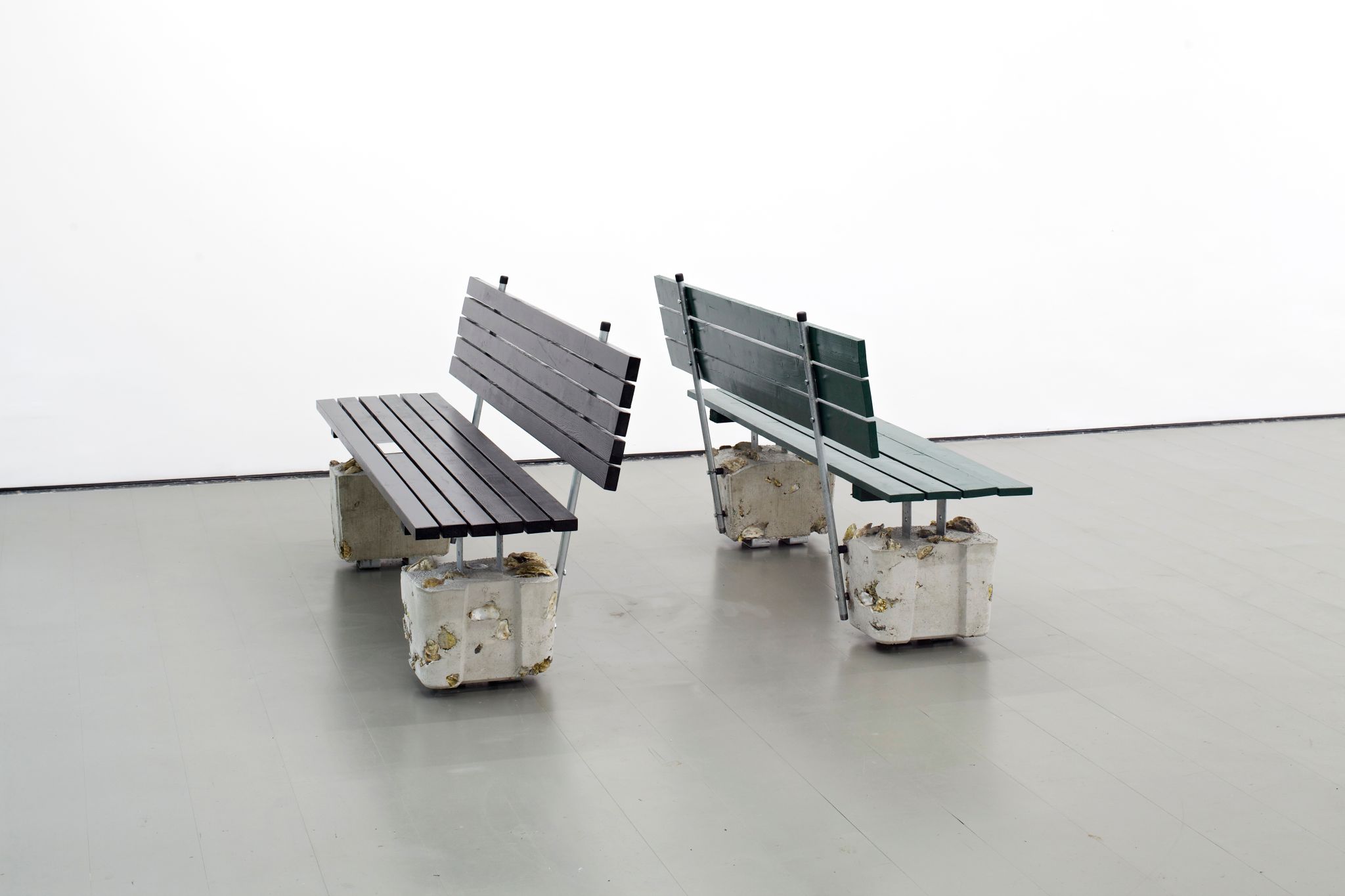
Installation view, Gerry Bibby, Passing Place, Deborah Schamoni, 2014 -
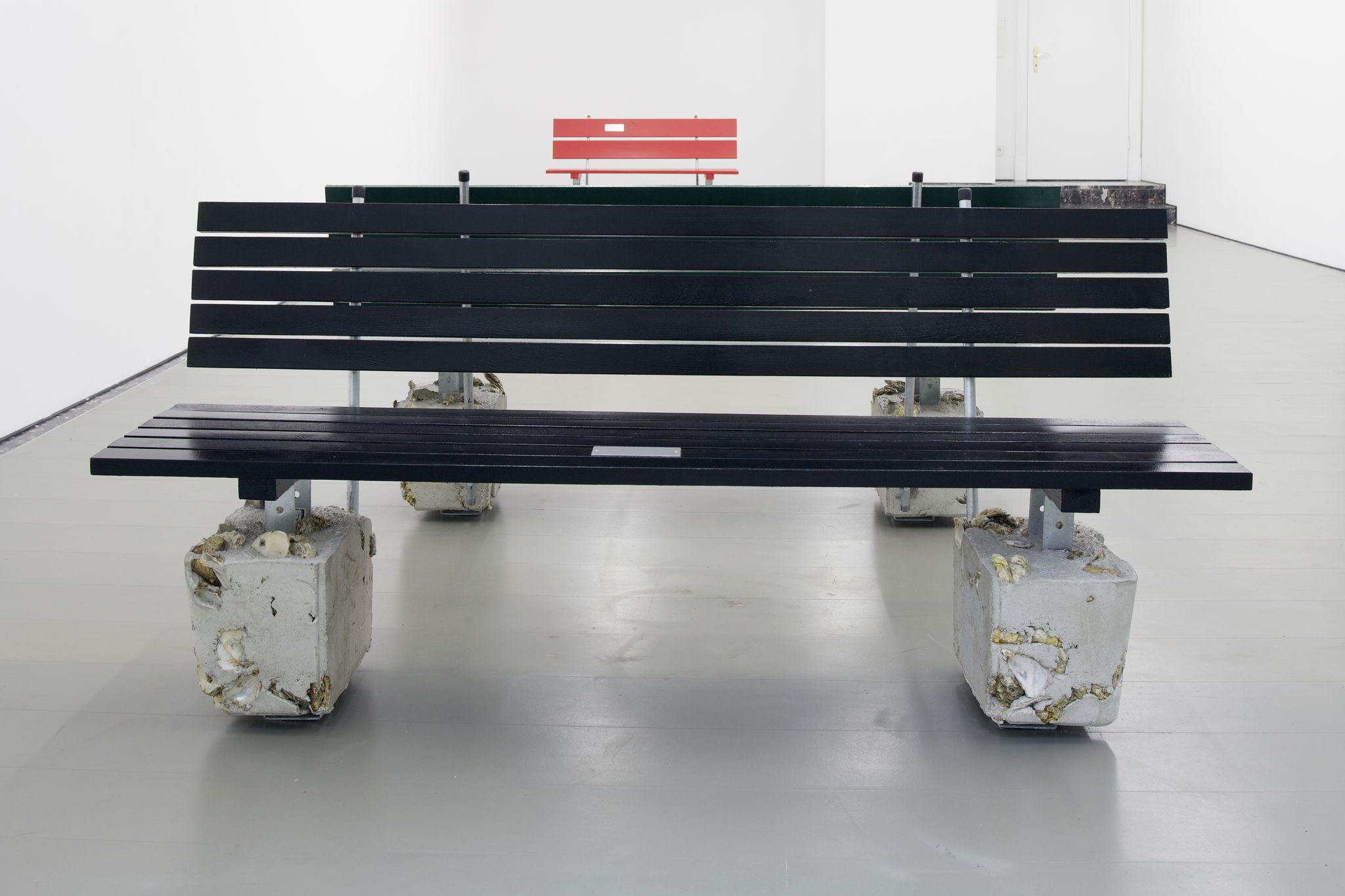
Gerry Bibby, NY BLACK ( ), 2014
Concrete, oyster shells, metal, wood, lacquer, aluminium, 88 × 180 × 46.5 cm -
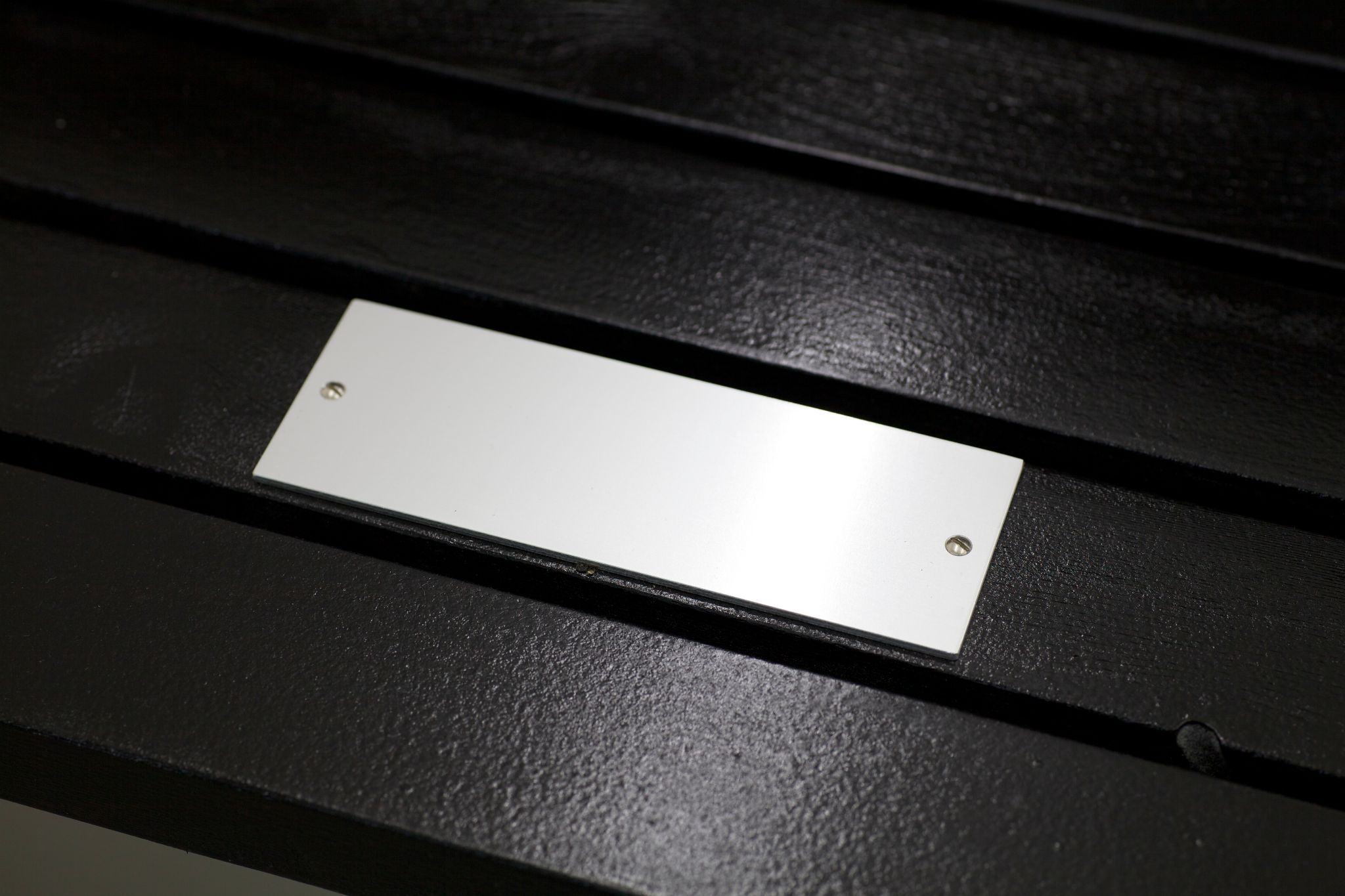
Gerry Bibby, NY BLACK ( ) (detail), 2014
Concrete, oyster shells, metal, wood, lacquer, aluminium, 88 × 180 × 46.5 cm -

Gerry Bibby, LONDON GREEN (Dedicated Follower of Fashion (2013/14)), 2014
Concrete, oyster shells, metal, wood, lacquer, brass, 85 × 160 × 46 cm -
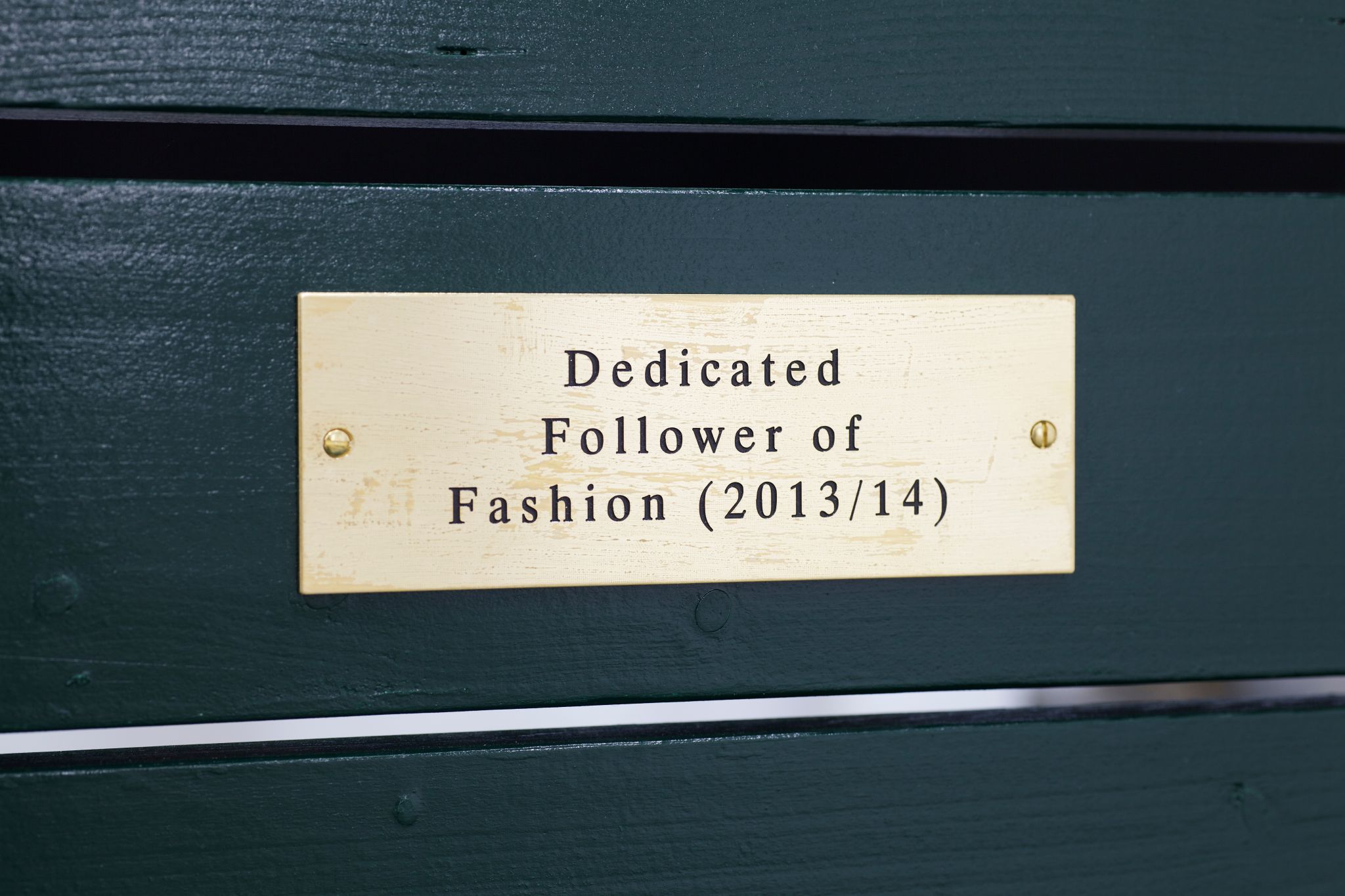
Gerry Bibby, LONDON GREEN (Dedicated Follower of Fashion (2013/14)) (detail), 2014
Concrete, oyster shells, metal, wood, lacquer, brass, 85 × 160 × 46 cm -
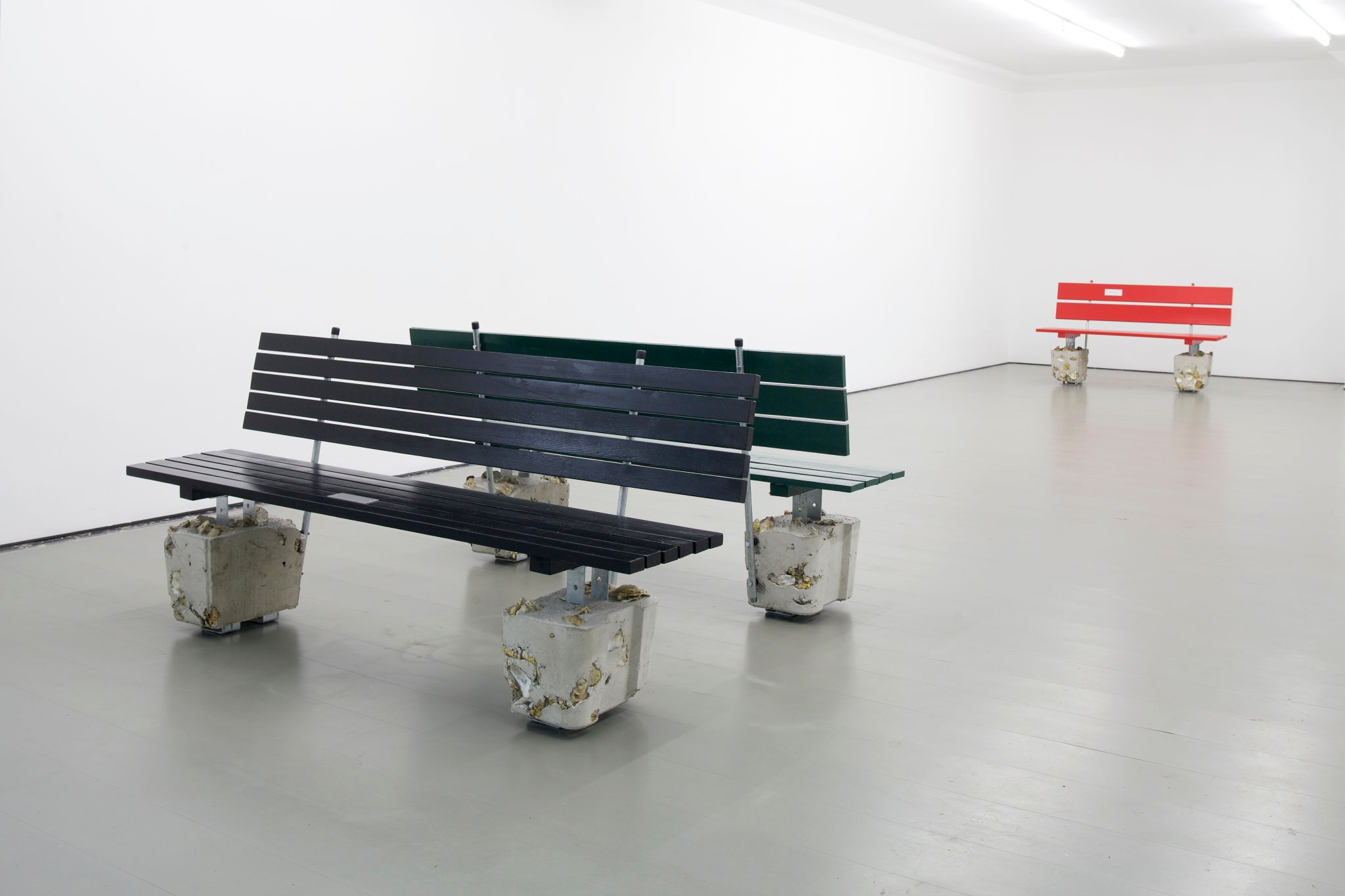
Installation view, Gerry Bibby, Passing Place, Deborah Schamoni, 2014 -
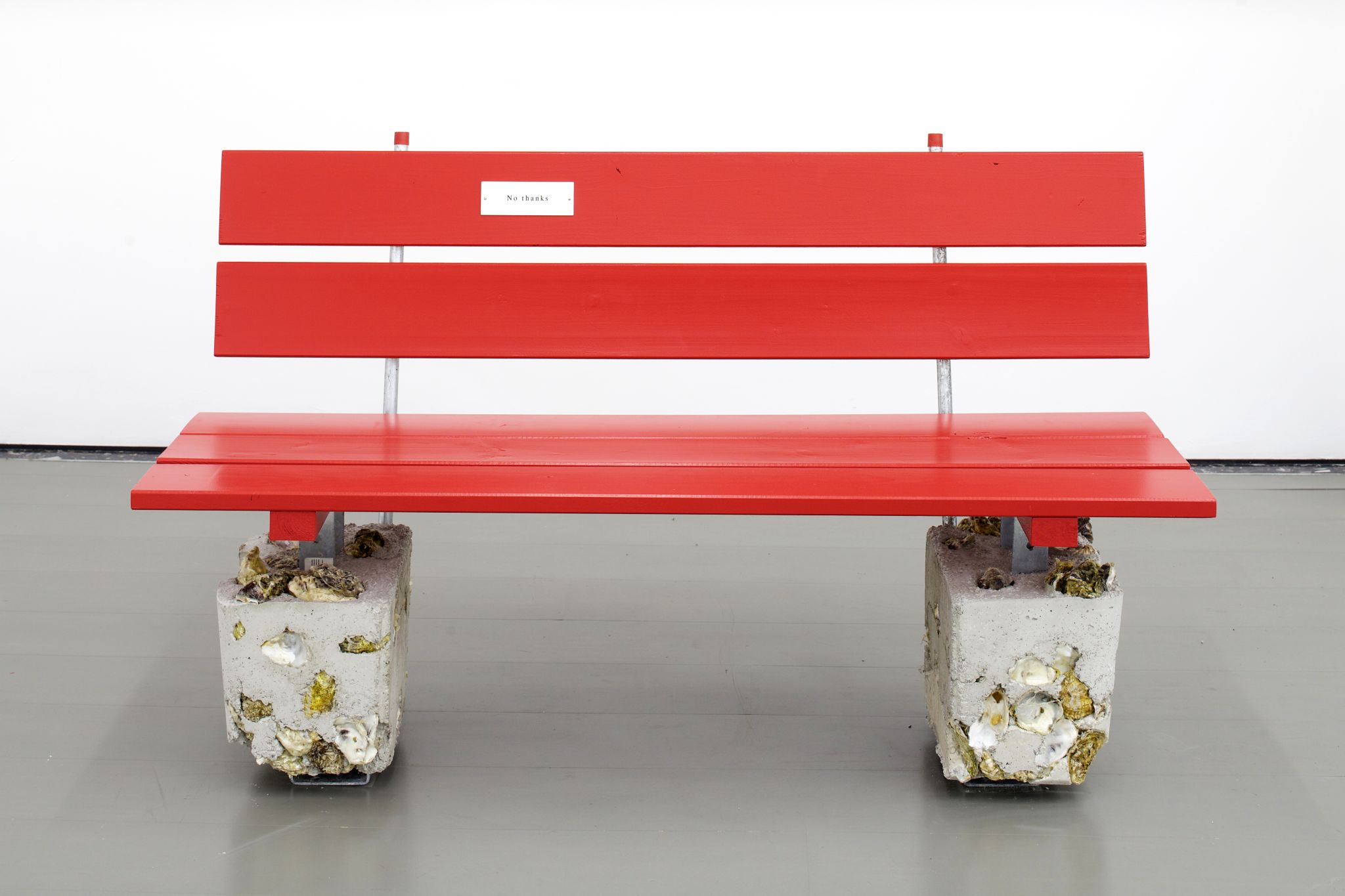
Gerry Bibby, LINDAU RED (No thanks), 2014
Concrete, oyster shells, metal, wood, lacquer, aluminium, 85 × 140 × 47 cm -
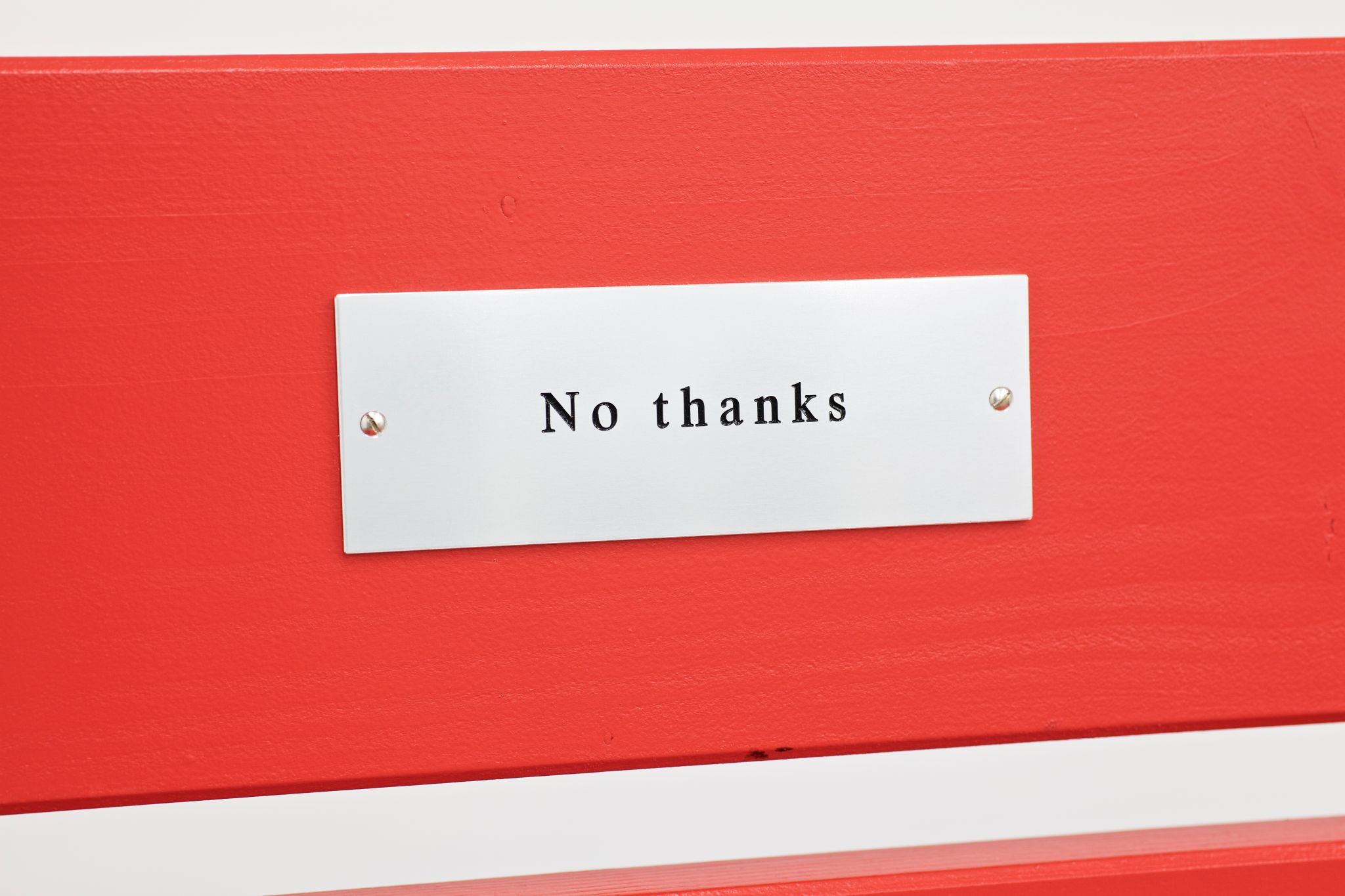
Gerry Bibby, LINDAU RED (No thanks) (detail), 2014
Concrete, oyster shells, metal, wood, lacquer, aluminium,, 85 × 140 × 47 cm -
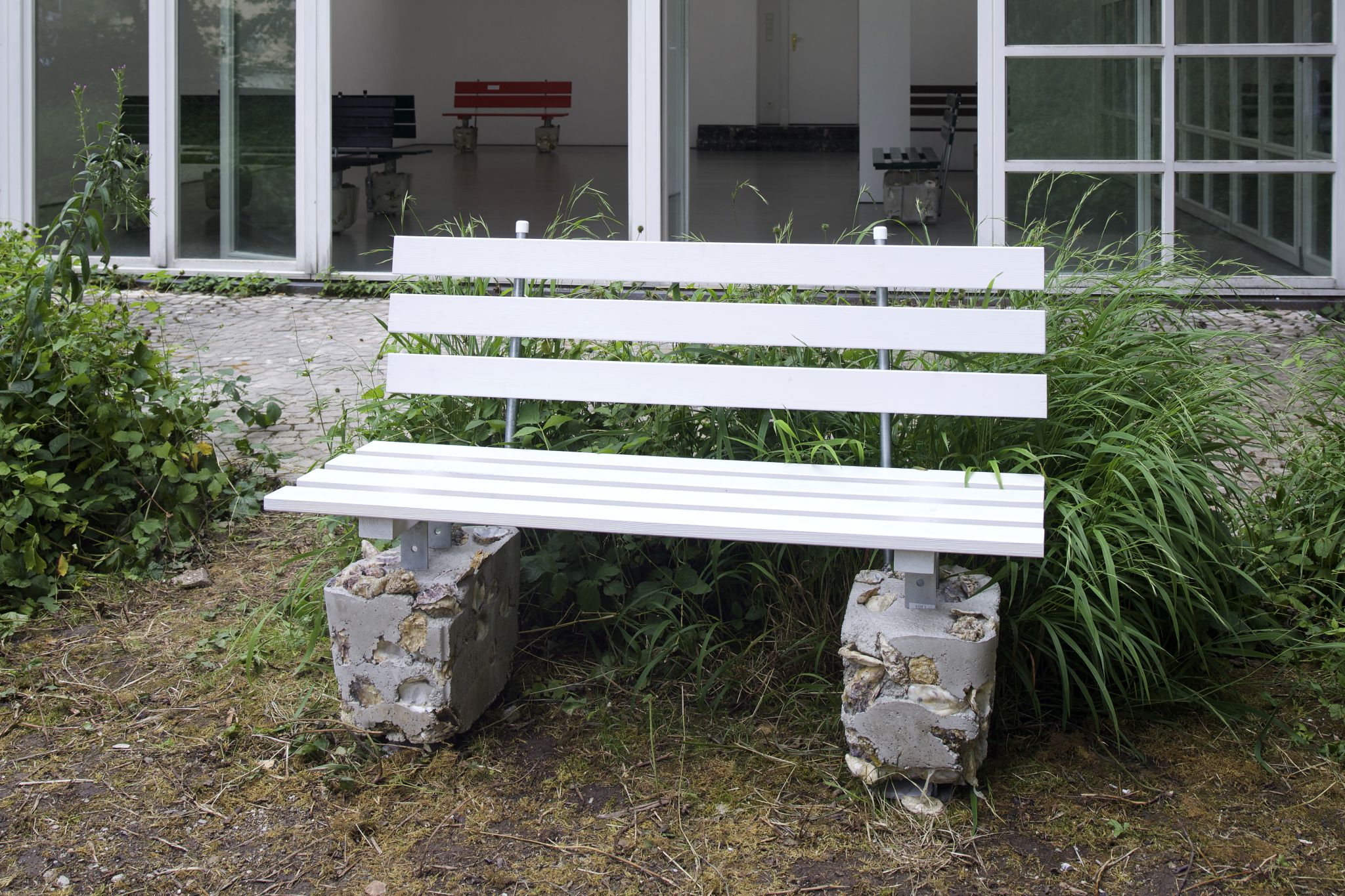
Gerry Bibby, BREGENZ NUDE (Natural’s Not In It), 2014
Concrete, oyster shells, metal, wood, lacquer, aluminium, 85 × 124 × 46 cm -

Gerry Bibby, BREGENZ NUDE (Natural’s Not In It) (detail), 2014
Concrete, oyster shells, metal, wood, lacquer, aluminium, 85 × 124 × 46 cm -
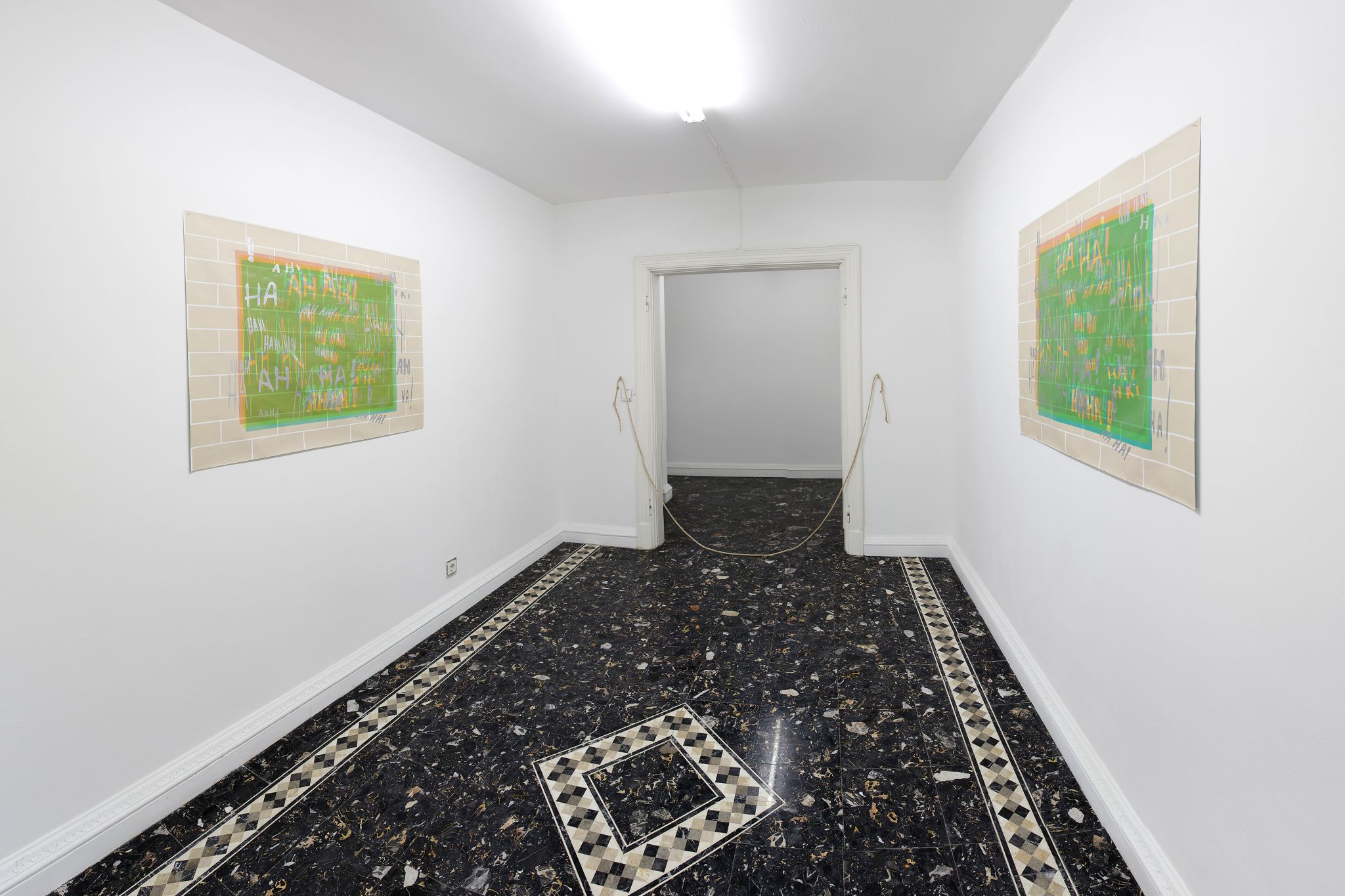
Installation view, Gerry Bibby, Passing Place, Deborah Schamoni, 2014 -
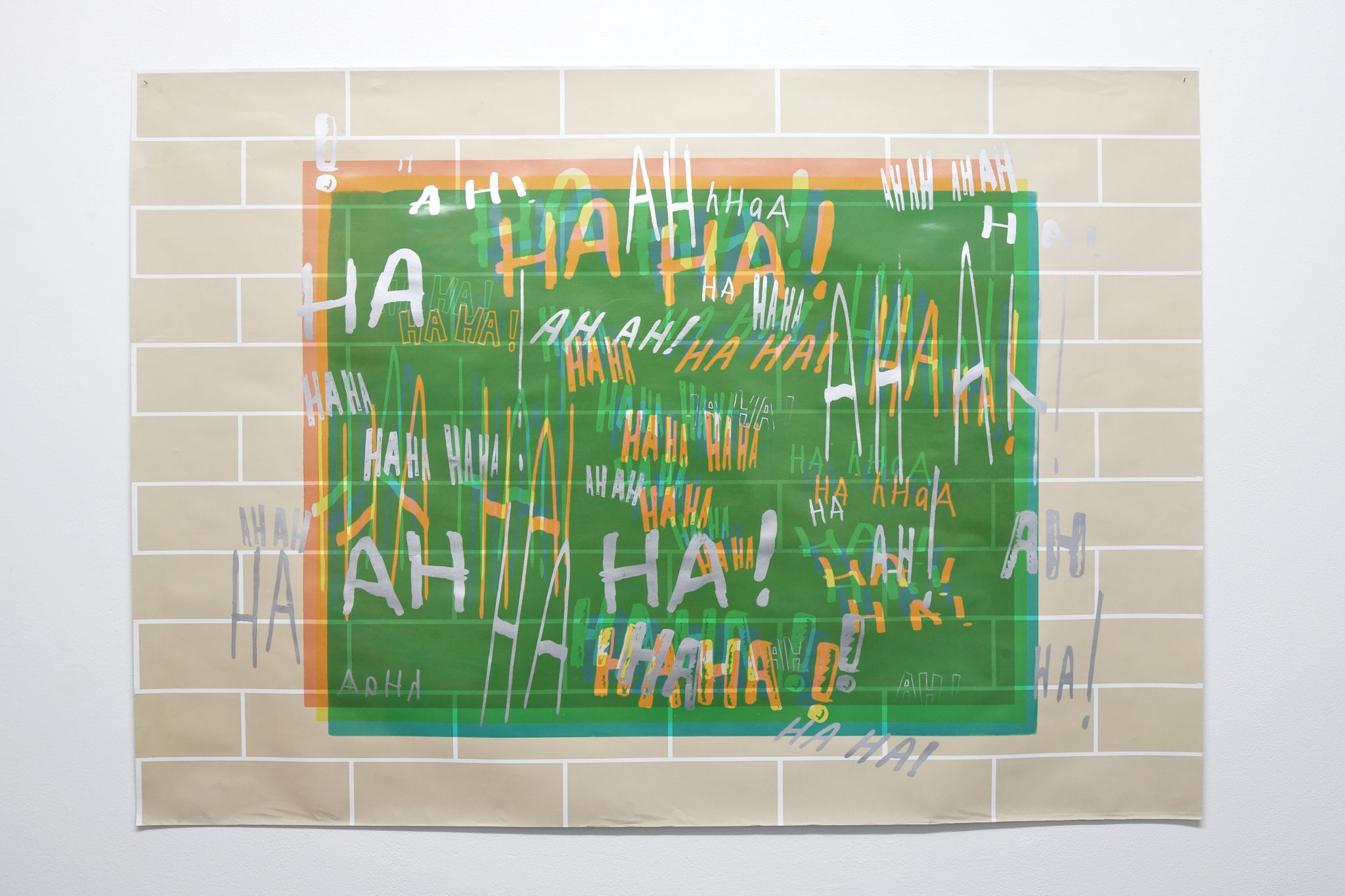
Gerry Bibby, The Pleasure of the Text (good), 2014
Silkscreen and offset print on paper, 119 × 84 cm -
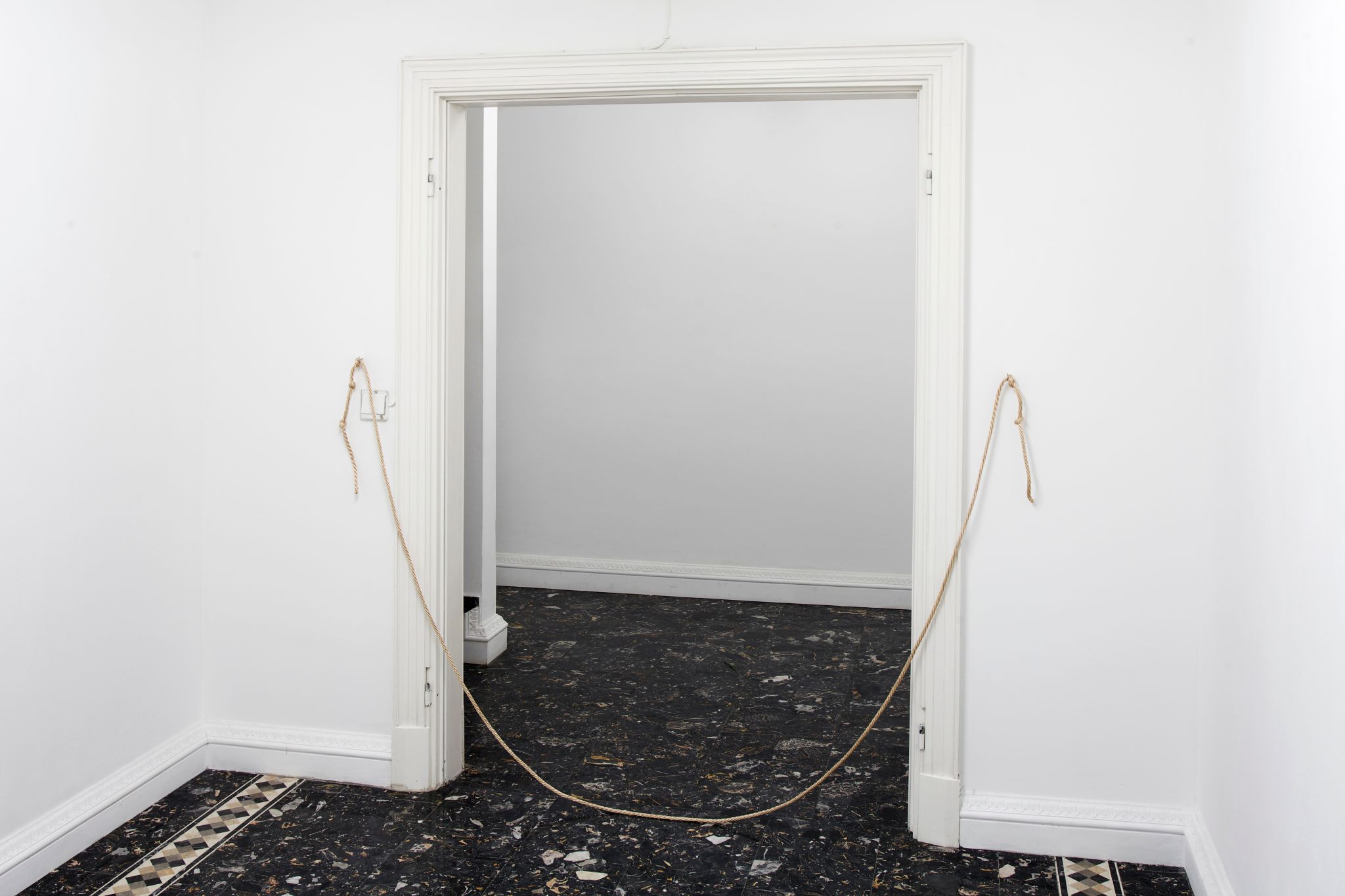
Installation view, Gerry Bibby, Passing Place, Deborah Schamoni, 2014 -
